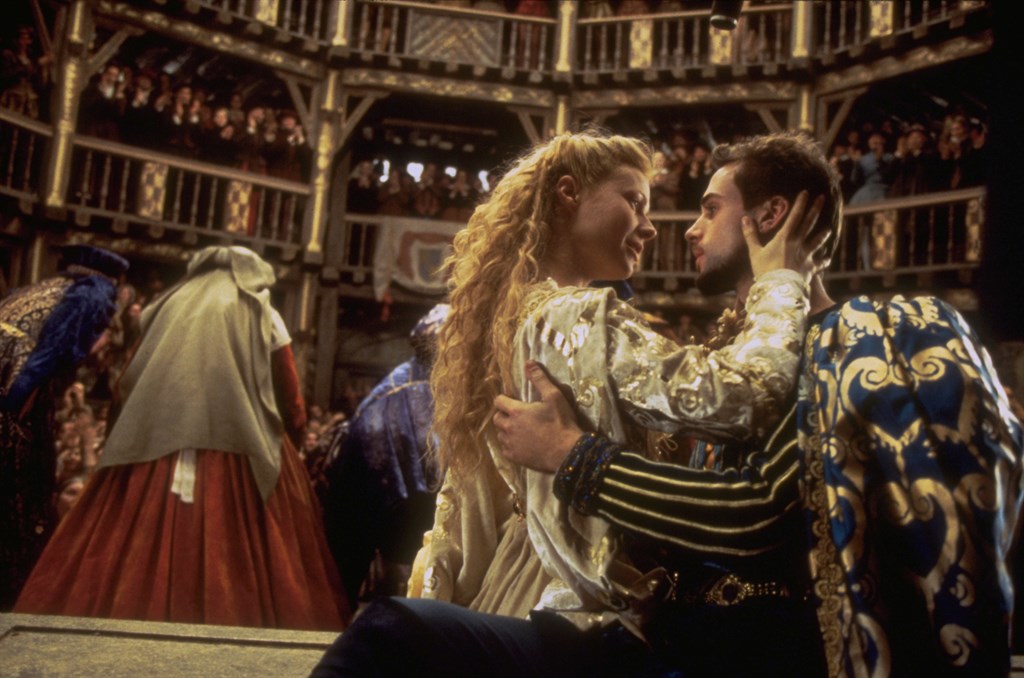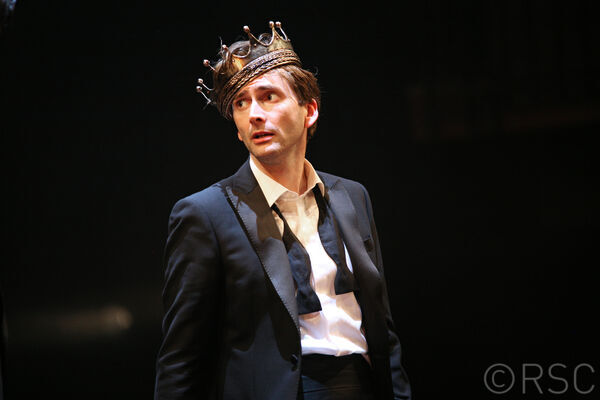
Why Shakespeare still matters

The Bard’s enduring popularity proves that even four centuries after his death, he can teach us much about tackling humanity’s great questions
Published 14 March 2016
Shakespeare would be amused at how famous he is in the 21st century.
Before anything else, he was a businessman: an actor, a shareholder in his company, as well as a playwright whose priority was to sell tickets. Half of his plays weren’t even published during his lifetime.

Now his legacy is all around us, from The Simpsons and Doctor Who, to movies such as Shakespeare in Love. Too bad he didn’t live to see the royalties.
To understand who we are, we need to understand where we came from.
You don’t have to live in England to see Shakespeare’s influence everywhere you look.
Shakespeare’s plays were amongst the precious few books brought to Australia by Captain Cook on his ship, The Endeavour.
A note on the back of Australia’s oldest surviving print document tells us that Richard III (probably Shakespeare’s play) was performed as early as December 1793 on Norfolk Island. Shakespeare is embedded in our history.

His plays were performed consistently in Australia throughout the 19th and 20th centuries, and remain some of the most frequently adapted stories in Hollywood.
Film producers could rely on familiarity with Shakespeare’s work, and use it as a licence to experiment with form. Some of the earliest silent pictures were of Shakespeare plays.
King John, for example, made it into film as a short feature as early as 1899. A silent Midsummer Night’s Dream (1909) was an early leader in special effects, making its fairies fly and disappear on film.
Shakespeare provided the vehicle for social commentary: in the 1956 sci-fi cult classic, Forbidden Planet (starring a very young Leslie Nielson), the “new world” of Shakespeare’s The Tempest is literalised as “new worlds” in the context of the space race concerns of the mid 20th century.
Screen violence reached new heights in Roman Polanski’s Macbeth (1971); a film made in the wake of the director’s pregnant wife having been murdered by the Manson Family. And for stylistic innovation alone, Baz Luhrmann’s Romeo + Juliet is impossible to ignore.
There is also a quirky side to Shakespearean history.
The common starling, an introduced pest in the United States, owes its introduction to a group of Shakespeare enthusiasts, who in 1890 thought it would be nice to release into Central Park every bird named in Shakespeare’s plays.
And if you believe American Shakespeare scholars, Shakespeare also helped the Allies win World War II.
Shakespeare scholar Charlton Hinman was working on the numerous and minute differences between printed copies of Shakespeare’s works when America entered the war and he became a naval cryptanalyst.

His interest in the printing of Shakespeare’s plays and in analysis of aerial photographs of pre- and post-bombing sites led to the creation of the “Hinman Collator”: an optical machine enabling rapid comparison between two virtually identical documents.
Vital technology for winning the war thus owes a debt to Shakespeare, in a way.
But why should we continue to see Shakespeare’s plays and to read his work?
For some, the beauty of his language and the relatable characters he created is enough. His fellow playwright and friend Ben Jonson described Shakespeare as “not of an age, but for all time”.

Arts & Culture
Shakespeare: Wherefore art thou meaning?
When we think of romance, we think of Romeo and Juliet. When we think of the dangers of ambition or of ruthlessness in politics, we think of Macbeth and Richard III.
When a comical mix-up takes place we still refer to The Comedy of Errors with its confusion of not just one set of twins, but two.
For others, there is an instrumental value in studying Shakespeare.
Sure, we live in an age of blogs and tweets and reels, but those who can think in long-form can also write concisely.
The converse isn’t necessarily true.
Shakespeare offers stimulating examples of complex material that helps hone our critical thinking skills.
After studying the construction of racial identity and prejudice in Othello – a play in which racial Otherness was literally constructed in Shakespeare’s day (just as gender was) by a white male actor using cosmetics and gestures – we are better equipped for analysing the motivations and strategies of racist thought in contemporary society.
There has never been a better time to enjoy Shakespeare.
We are not precious about his work anymore: actors don’t have to feign English accents or wear tights.
To focus on just a single play, think about the infinite variety of interpretations that Macbeth has produced. In the classic 1957 Japanese film Throne of Blood, Akira Kurosawa located Shakespeare’s story within the influence of Noh theatre and a Japanese aesthetic emphasising the inevitability of karmic fate.

Arts & Culture
Shakespeare and lost plays
He reimagined the Scottish warlord as a samurai warrior (Washizu, played by Toshirô Mifune) who rises to the rank of Great Lord of the Spider’s Web Castle after he receives a prophecy from an eerie forest-spirit and is manipulated by his even eerier wife (Lady Asaji, played by Isuzu Yamada).
In the BBC’s Shakespeare Retold series of the early 2000s, barely a word of Shakespeare’s text survives as “Joe Macbeth” (James McAvoy), an aspiring chef, is tempted to kill the head chef and take over the kitchen himself.
In 2012, the ridiculously talented Alan Cumming performed Macbeth essentially as a one-man play, set in a Victorian-period mental institution – what one critic called “a kind of schizophrenic nightmare”.
And of course, in the post-Downton Abbey infatuation with period drama, director Justin Kurzel returned us to a pseudo-historical setting of a rugged Scottish landscape as cold as the hearts of the characters it dwarfs, in his 2015 film starring Michael Fassbender and Marion Cotillard.

Arguably what makes Shakespeare’s work so enduring is that he doesn’t provide easy answers. He does not tell us what to think; he teaches us how to think.
His characters and the situations they find themselves in are complex; complex enough to warrant continued investigation four centuries later.
Were Romeo and Juliet’s parents cruel, or were they being responsible and pragmatic in looking after their children’s long-term interests?
Should Hamlet have trusted his instinct and acted decisively, or was he wise to delay until he thought he had proof? Or as King Lear’s decision to divide his land but retain the crown prompts us to consider, does power reside in a title or in actions?

Arts & Culture
Why Shakespeare would approve of the Pop-Up Globe
The questions of identity, race, terror, sex, violence, religion and gender raised by Shakespeare’s plays continue to be hotly debated in contemporary culture, though rarely with the subtlety and intelligence found in Shakespeare.
In wrestling with the provocative questions and scenarios Shakespeare created, we question our own assumptions and beliefs, clarify our own thoughts, and become better thinkers.
And as the vast diversity of film and stage performances suggests, we continue to have fun in the process.
